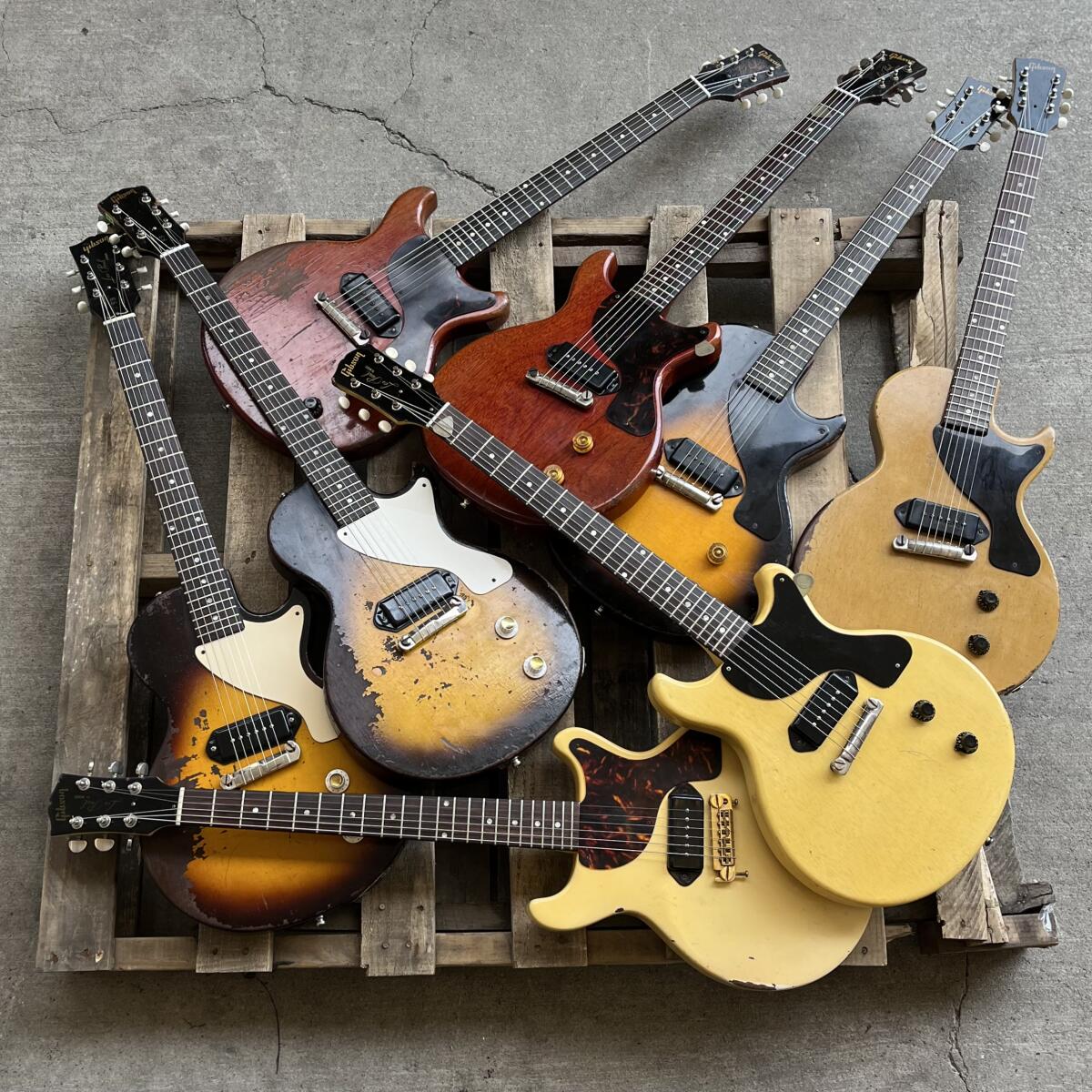On the shelf
The Road, by Brian Baker
128 pages, $37.27
If you buy books linked on our site, The Times may earn a commission from Bookshop.org, whose fees support independent bookstores.
As a guitarist, Brian Baker has punk rock and hardcore credentials that are unparalleled. From effectively launching “hardcore” as a genre with Minor Threat when he was a teenager to bringing in the more melodic side of the scene with Dag Nasty and then joining Bad Religion in the mid ’90s, it’s hard to argue that any guitarist has been more influential to their scene than Baker.
“I think I just have a knack for being at the right place at the right time,” Baker says when asked about his contributions to the aforementioned legendary bands. “The key is to respect that legacy and not f— it up. I understand it’s a big deal to a lot of people — much more than it is to me. I’m just the guy who’s playing guitar, but I’ve been fortunate enough to be in bands that have been foundational for a lot of people. I think about that when I get on stage every day. I want to do a great job every time. As long as I’m able to still deliver a performance that I have respect for, hopefully other people will too.”
Standing at a high-top table under a white awning backstage at Riot Fest (Chicago’s massive punk rock festival where most of the acts are either friends of Baker or inspired by one or more of his bands) after nearly a half-century of allegedly just happening upon one iconic band after another, Baker recently released a new project — one that he’s worked on for almost 20 years during his ongoing run with Bad Religion.
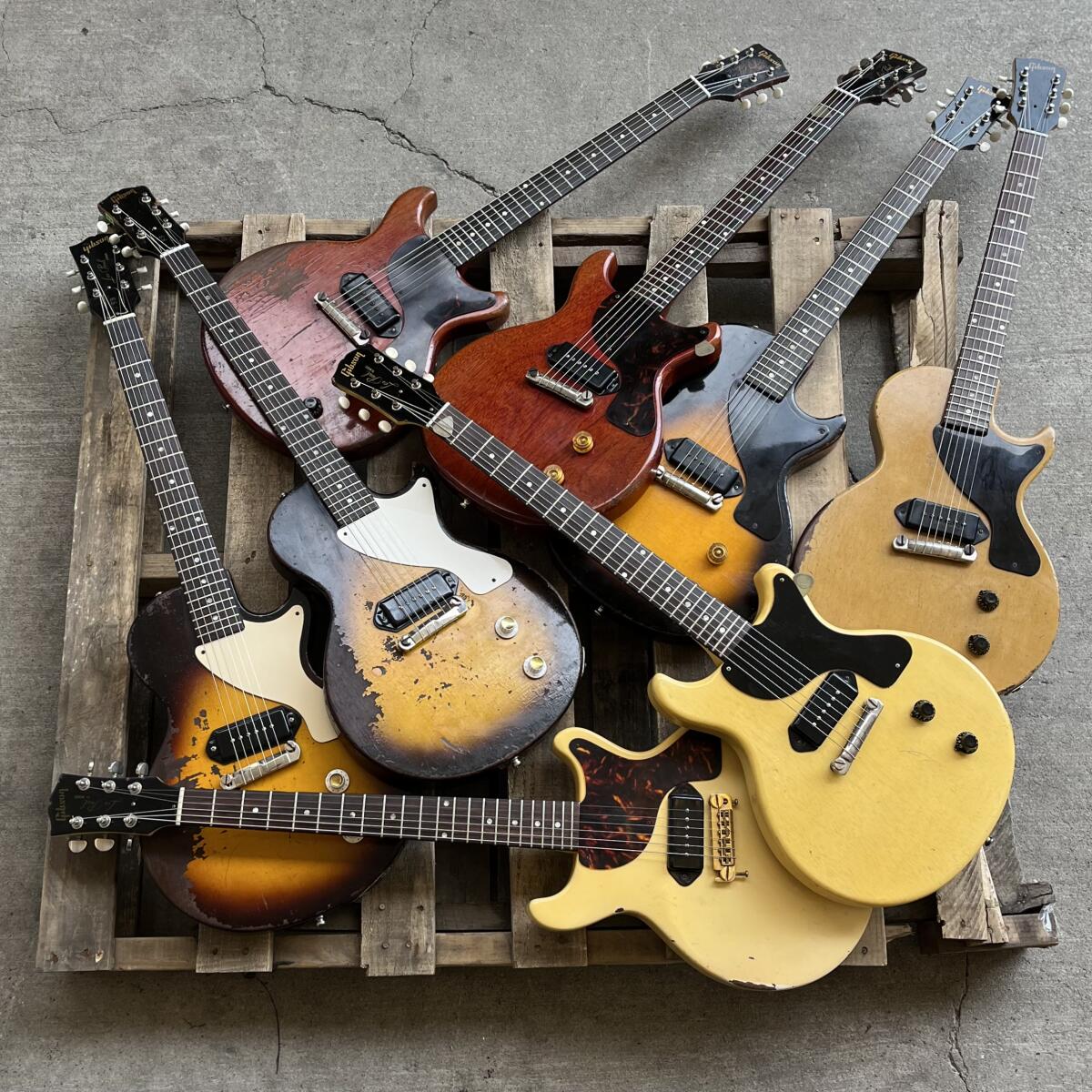
A shot of Baker’s guitars on a wood pallet.
(Brian Baker)
Every time the legendary Los Angeles punk band goes on the road, Baker (like most touring musicians) finds himself with entirely too much time to kill before and after their nightly performances. To fill those long hours in strange cities, the 60-year-old D.C. native often turns to the piece of technology that so many use to occupy their free time, his smartphone. But rather than mindlessly scrolling social media or watching YouTube videos, Baker discovered a new passion for photography, constantly using each and every camera lens on the iPhones that have been in his pocket since the original released in the late 2000s.
Until recently, the fruits of Baker’s photography hobby had effectively only existed on his personal Instagram. That was until things started falling into place (“Like many things in my career,” Baker says, consistent in his refusal to take credit for the majority of his successes) for him to release some of his favorite photos as a book, appropriately titled “The Road” (released Nov. 4 via Akashic Books).
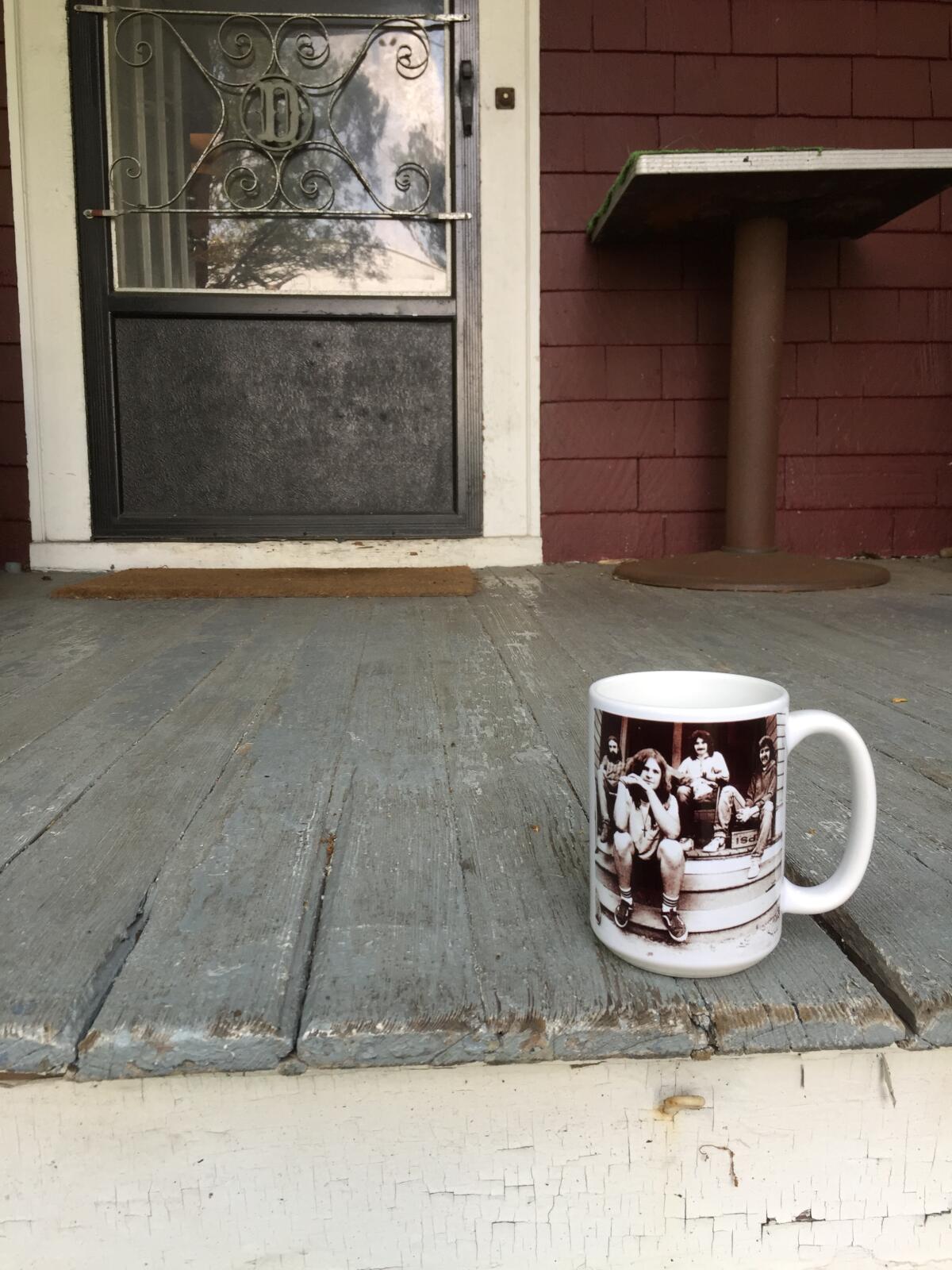
A mug shot of Baker’s first band, D.C. hardcore pioneers Minor Threat.
(Brian Baker)
“My wife suggested for a long time that people might want to look at my photographs, and I was like ‘OK, that’s great,’ but never really thought about it,” Baker says, his bandmates and other longtime friends circulating through Chicago’s Douglass Park. “Eventually, a good friend of ours named Jennifer Sakai — who’s a great photographer and has made books in the past — made a mock-up from my Instagram of what a book could look like. I wasn’t looking to make a book, but she basically presented a finished product to me, so I contacted a guy I went to elementary school with, Johnny Temple — who plays [bass] in Girls Against Boys and Soulside and has a publishing company. Much like my more successful rock bands, I walked in after everyone did all the work, and now I’m just going to coattail it.”
With or without the new book, Baker says his time-killing love of photography was born out of the veteran guitarist feeling as though he was forgetting too much and missing some of his key memories from his time on tour. Once he gave up drinking, Baker realized that he needed a way to embrace the 20+ hours each day he wasn’t spending on the stage or getting ready. He started filling his days with long walks and visits to his favorite locales — old churches, interesting buildings, graveyards (“That’s not the goth in me saying this,” Baker jokes) and anywhere else where he entertain himself away from people. And rather than trying to tell the story of the last 18 years through his iPhone camera, he’s happy just documenting those certain moments and “a lot of different ways to spend your time” in “The Road.”
“I used to take a film camera on tour, and I’d shoot a couple rolls and then forget about the camera and leave it at the hotel or something,” Baker says. “I didn’t really do a good job of being a photographer, because I’m not a photographer. I’m just a guy with a cellphone, but having the phone always on me, I just kept taking pictures of stuff for no real reason. It was like ‘Hey, look at this weird thing’ or “Look what we ate tonight” or “That church is f— up” with no intention of it being a collection or anyone really seeing it beyond my friends and family. Eventually, I got an Instagram account and some of the stuff would go there, but I’m not really a social media maven either.”
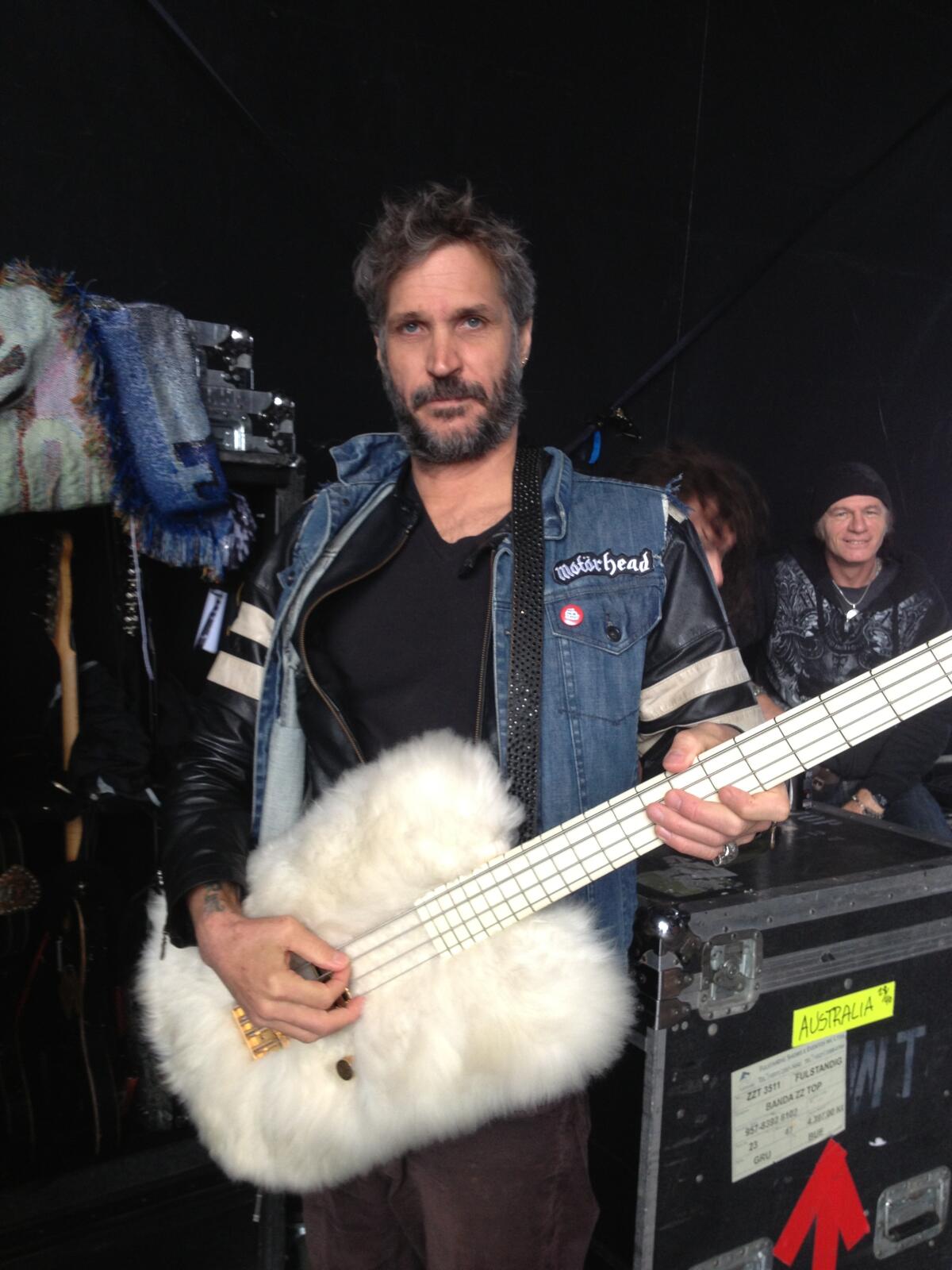
Bad Religion bassist Jay Bentley playing a bass.
(Brian Baker)
Aside from his photography skills, the release of “The Road” has also allowed Baker to flex his storytelling muscles at the various bookstores, record shops and more that he’s hitting this fall (including early October dates at West Hollywood’s Book Soup and Fullerton’s Programme Skate & Sound). Although it’s a more intimate setting than he’s used to and he’s lacking his signature guitar, Baker jokes that it’s not so different from performing music, because he’s still “on a stage with a microphone and wearing black pants.”
The book tour has also been an opportunity for Baker to connect with fans and reflect on Bad Religion and his prior bands (along with various side projects like supergroup Fake Names and Beach Rats). While he maintains that his involvement in punk history mostly comes down to happenstance, he believes that Bad Religion’s multi-generational staying power stems from always being “uniquely unfashionable” and having intelligent lyrics about topics that are still relevant. Add in the fact that they’re always improving as musicians and just enjoy getting together without looking at the bigger picture, and “not having a plan has proven to be effective” for the stalwarts.
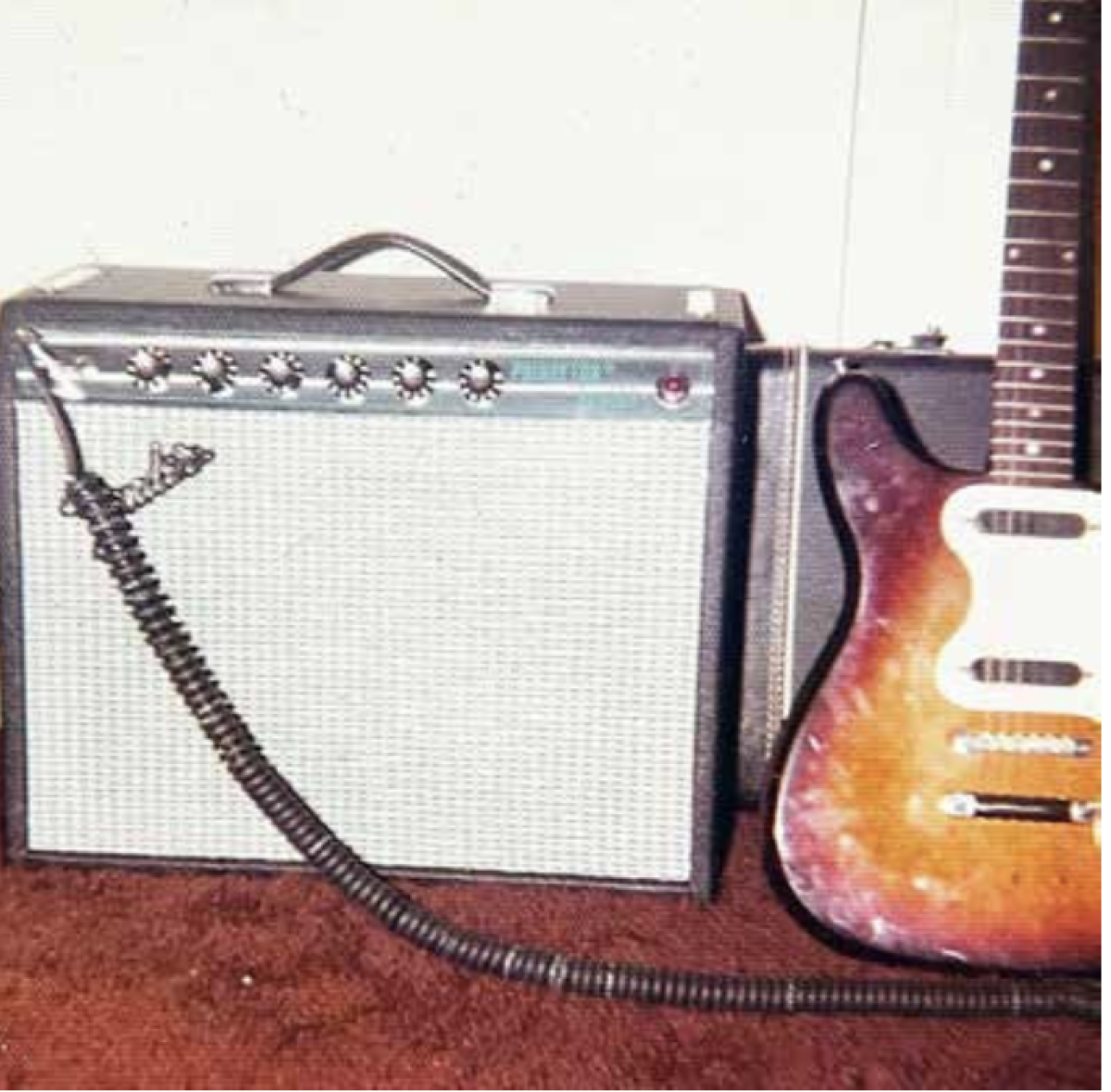
Photo of Baker’s first amp and guitar
(Brian Baker)
But more than anything, Baker’s lack of planning or direction around his photography brings him back to the DIY nature of his early days creating albums that are now viewed as the very foundation of a four-decade-old global hardcore movement.
“Anybody can do this, so it does remind me of making records when I was very young,” Baker says. “We were just making our own records ourselves and selling them in high school, and that was Minor Threat. You think about how significant that is now, 45 years later, it’s the same thing with taking pictures. I just took a bunch of pictures, and now someone’s made a book out of them. It’s something you can do yourself, and I love that about it.”
